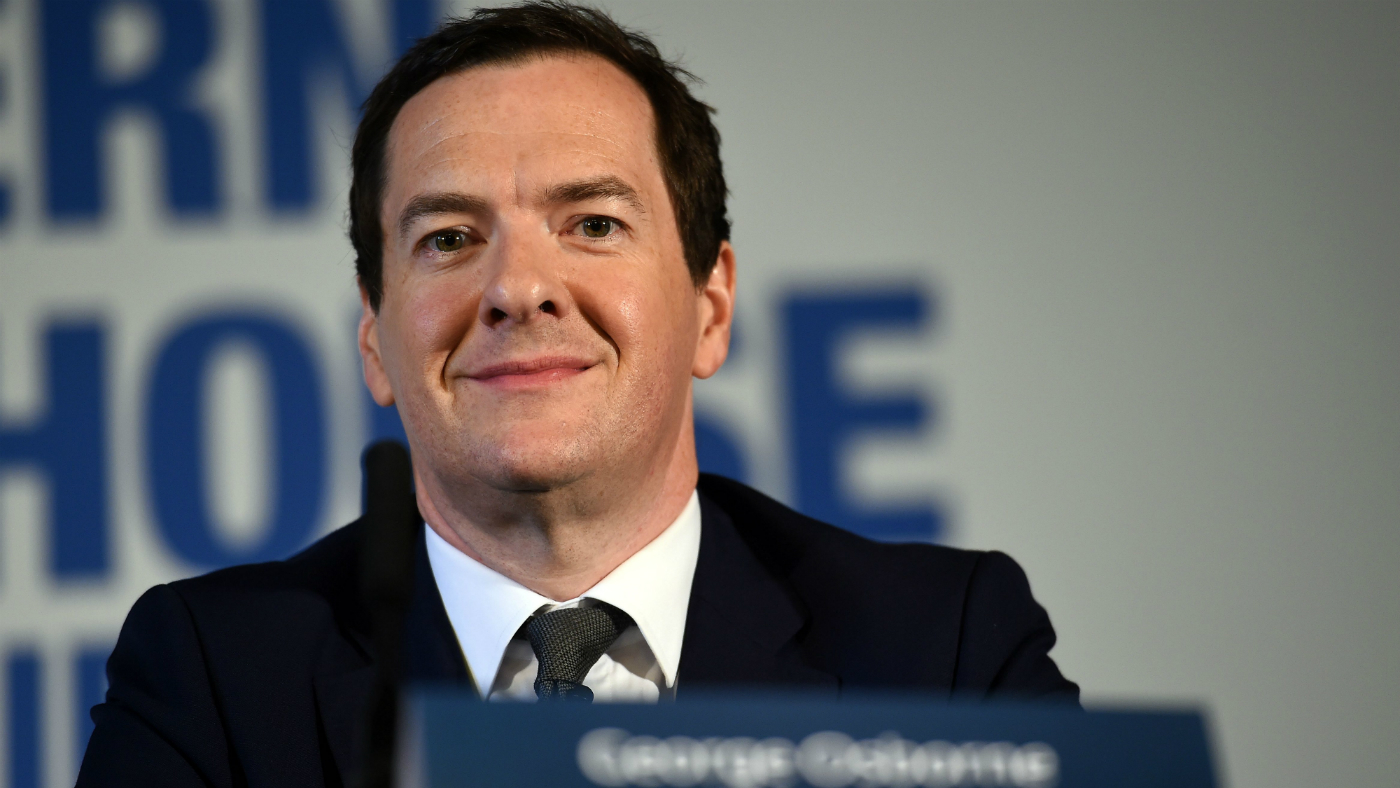What is the Northern Powerhouse?
George Osborne’s think tank was designed to devolve power and boost the North’s economic output

A free daily email with the biggest news stories of the day – and the best features from TheWeek.com
You are now subscribed
Your newsletter sign-up was successful
George Osborne’s Northern Powerhouse think tank will hold its own review into the HS2 high-speed railway amid reports that the project may be scrapped by Boris Johnson’s government.
The Northern Powerhouse Partnership (NPP) said it would offer a northern perspective and ensure the North is properly heard ahead of the government’s “go or no go” review into the line, says The Guardian.
The government review, expected to release its conclusions before the 31 October Brexit deadline, is being jointly written by Lord Berkeley, a critic of the project who has repeatedly challenged its estimated costs and said that budgets were out of control.
The Week
Escape your echo chamber. Get the facts behind the news, plus analysis from multiple perspectives.

Sign up for The Week's Free Newsletters
From our morning news briefing to a weekly Good News Newsletter, get the best of The Week delivered directly to your inbox.
From our morning news briefing to a weekly Good News Newsletter, get the best of The Week delivered directly to your inbox.
The outcome of the review will likely be the final word on whether the Northern Powerhouse’s flagship scheme should continue or be scrapped entirely.
Henri Murison, director of NPP, said: “The Northern Powerhouse is of critical importance to the future of UK prosperity, and without improving connectivity it will be difficult to address the underlying reasons for our lower productivity.”
What is the Northern Powerhouse and what are its goals?
The Northern Powerhouse is the name of a plan to boost the economic power of the North of England, first put forward in 2014 by the then chancellor, George Osborne.
A free daily email with the biggest news stories of the day – and the best features from TheWeek.com
He described it as “not one city, but a collection of northern cities - sufficiently close to each other that combined they can take on the world”.
The Northern Powerhouse Partnership (NPP) is an independent body that was launched in September 2016 to represent businesses and officials in the North. The NPP, which is chaired by Osborne, says its aim is to “increase the impact and contribution of the North of England to the UK economy”.
The inaugural NPP report, released in 2017, said that realising the Northern Powerhouse vision could grow the region’s economy by £100bn and create 850,000 jobs.
To achieve this, the Northern Powerhouse plan focuses on improving transport links, investing in science and innovation, and devolving more powers from Westminster to northern cities, through a new system of “metro mayors” with greater powers over the running of their cities.
How well is it doing?
Devolution of power has been one clear area of success. Research by the IPPR North think tank found that since 2014 five “metro mayor” elections have been held - in Greater Manchester, Liverpool City Region, Tees Valley, Sheffield City Region and the North of Tyne - and that 47.1% of the North is now governed by a mayor.
The scheme has also secured a boost in transportation funding. “Transport for the North – a new regional transport organisation – has brought forward a £70bn investment package”, says the report.
Nonetheless, spending on transport rose by more than twice as much per person in London as in the North.
The report also found that there has been a £3.6bn cut in public spending in the North since 2010, compared to a £4bn rise in the South.
And “public sector employment fell by 37,000, or 2.8%, compared to 1.2% in London, 1.6% in the South West, and 1.7% in the South East”, the report says.
Ben Houchen, the Conservative mayor of the Tees Valley, said in The Guardian: “The only reason the Northern Powerhouse worked is that you had George Osborne at Treasury driving it. To deliver the Northern Powerhouse you’ve got to have those levers at Treasury that you can pull to make it work.”
Chi Onwurah, Labour MP for Newcastle upon Tyne Central, said, also in The Guardian: “But without real investment, powers and accountability, it can never be more than a marketing ploy with a little money attached”.